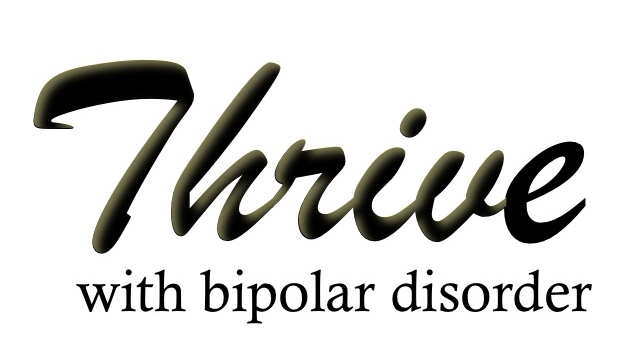 I highly value curiosity and welcome questions that can be generalized to be helpful to a lot of people.
I highly value curiosity and welcome questions that can be generalized to be helpful to a lot of people.
Every thing that I write here is my opinion based on two things, my personal experience of living with bipolar disorder and my experience of helping people live with bipolar disorder both professionally and through out my life.
Here are the questions I have received recently:
-
What do you mean by “I am living with bipolar disorder”?
-
What are an M.A. and MFTi? (The letters that come after my name)
-
Can you treat bipolar disorder with just medicine or do you need therapy as well?
-
What does lithium do?
What do you mean by, “I am living with bipolar disorder”?
CLEARING UP CONFUSION: I, Robin Mohilner, was diagnosed with bipolar disorder as a teenager. I do not write from the perspective of living in a home with someone diagnosed with bipolar disorder.
I do not own “bipolar disorder” as my identity. It is not who I am. I try to refrain from saying, “I am bipolar.” That gives bipolar disorder the upper hand in my life.
By having the attitude and mindset that “I am living with bipolar disorder.”, I have the upper-hand.
I am in a relationship with bipolar disorder. I experience it as separate from me. It affects me and I affect it (powerfully).
It does not control me, but when I’m not paying attention to our relationship, it temporarily gets the upper hand and I lose my power and control.
When I’m not paying attention, bipolar disorder loves to take me on emotional rollercoasters. It loves when I am nervous or uncomfortable because it gets the upper hand and off I go unknowingly breaking unspoken social rules and impulsively speaking before I think or it makes me think so fast that it’s difficult to get words out of my mouth.
On the other hand, I have spent fifteen years developing a strong upper hand. I get how bipolar disorder works. I know how to prevent and contain my episodes. I know what bipolar disorder needs and wants. I am skilled in the art of stealing its power and fuel so that it cannot control my life. My passion is to develop this in others.
The key is that I exercise my “paying attention” muscle everyday. This keeps me living with bipolar disorder instead of being bipolar.
What are an M.A. and MFTi?
This question addresses my professional credentials.
M.A. refers to the Master’s Degree that I have earned in psychology, specifically in Marriage & Family Therapy, with eligible certification as an Art Therapist.
I earned my Bacherlors degree from U.C. Berkeley in Psychology and my Masters Degree from Phillips Graduate Institute in Marriage and Family Therapy.
However, earning degrees does not make me a therapist. I have spent years paying my dues, which will explain the MFTi.
MFTi stands for Marriage and Family Therapist Intern. For the past five years I have practiced as a therapist under the license of supervising therapists.
I have successfully completed all of the hours of experience that I need to become a licensed therapist; however, I am currently patiently waiting (it’s a long wait) for the state of California’s Board of Behavioral Science to approve my hours of experience and grant me permission to take two challenging exams. When I pass these exams, I will be officially a Licensed Marriage & Family Therapist (LMFT).
Can you treat bipolar disorder with just medicine or do you need therapy as well?
You CAN do anything you want. Nonetheless, bipolar disorder is complex and it affects a person’s complete way of being in the world.
Bipolar disorder is a reflection of the way the brain functions. It affects both how people think (very fast), feel (passionately) and how people respond to things that cause excitement, stress, fear and basically any human emotion. There are both profound strengths (example, many experience high levels of intelligence and creativity) and weaknesses (example, having no intuitive clue about what is socially appropriate).
Bipolar disorder affects people’s self-esteem, relationships and quality of life. Medicine does not change that.
Medication only reduces depression and mania. Bipolar disorder is more than just an episode.
Therapy helps one navigate through the complexity and develop their awareness of how they are affected by bipolar disorder and utilize their own strengths, abilities and skills to construct their preferred way of being.
What does lithium do?
Scientists still do not know how lithium works.
Nonetheless, they do believe they have found two ways that lithium affects the brain.
One way they believe the brain is affected is at the level of the axon in neurons. Neurons are the brain’s cells that do all of the communicating. Scientists believe that lithium affects the myelin sheath on the axon (the part of the neuron that message travels down). It is believed that brain’s affected by bipolar disorder have deteriorated myelin sheath and lithium may help reconstruct it.
Another more recent finding on the effect of lithium is that scientists have found that lithium may build brain structures that are deteriorated in people living with bipolar disorder. Some of these early findings show that scientists witness change in areas such as the amygdala (seat of emotions in the brain) anterior and posterior cingulates (seat of impulsivity, awareness of unspoken social rules, center of inhibition that are all diminished in people with bipolar disorder).

